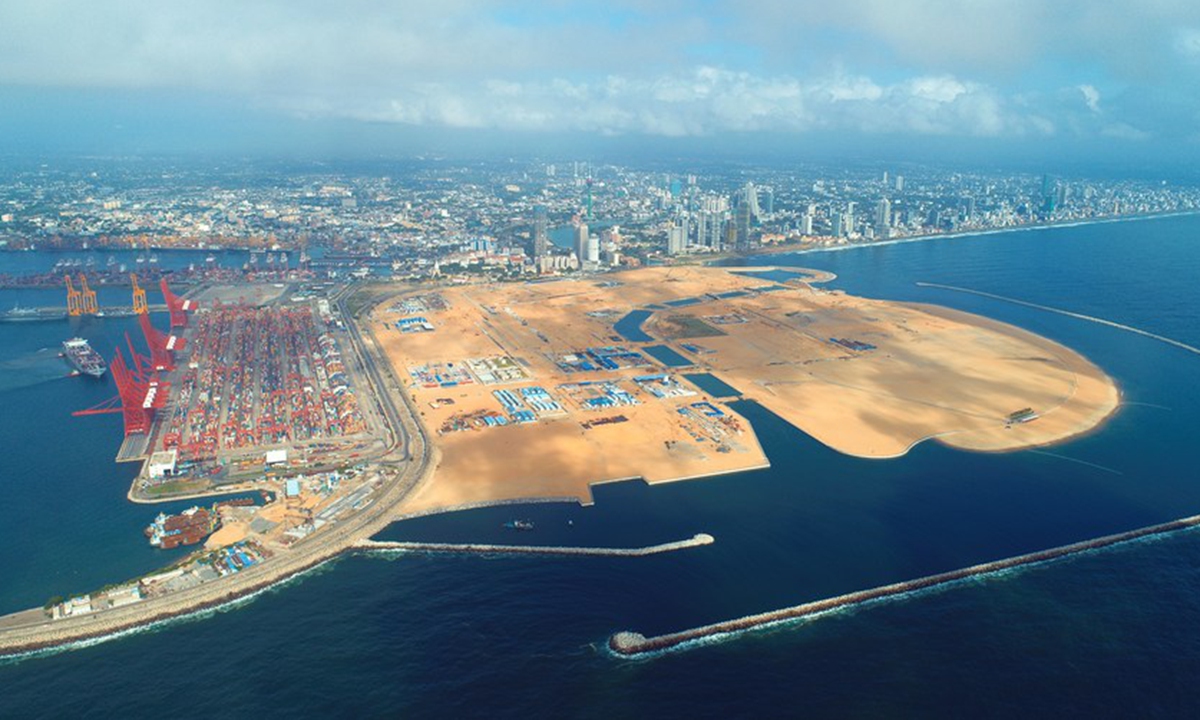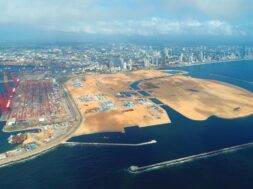
Sri Lanka develops its Economic and Strategic relations with India, Challenge to China
_Vinayak Barot
Rising Economic relations of the New Delhi government with the Colombo Authority could be an open challenge to China from India in the Future. For the last few months, The Government of India and Big Business Bulls are taking an interest to invest a huge amount in Sri Lanka and develop all kinds of relations with the Sri Lankan Government.
The Indian Investments in Sri Lanka are like someone who comes with arrows to hunt the Dragon in a foreign country.
A few days back – India’s Business Group – Adani Group sealed a deal with the state-owned Sri Lanka Ports Authority (SLPA) to develop and run the strategic Colombo Port’s Western Container Terminal. As the first-ever Indian port operator in Sri Lanka, Adani Group will have a 51 percent stake at the port’s Western Container Terminal (WCT).
The two local entities would hold 34 and 15 percent stakes of the new joint company titled the West Container International Terminal.
Apart from Business deals, Foreign Secretary Harsh Vardhan Shringla on Saturday began his four-day visit to Sri Lanka during which he will meet the top leadership, including President Gotabaya Rajapaksa and Prime Minister Mahinda Rajapaksa, and review the bilateral ties between India and the island nation.
During his visit, the FS will be visiting 4 cities–the national capital Colombo and Kandy, Trincomalee, and Jaffna. The key focus during the visit will be strengthening economic partnership and people-to-people ties.
According to media reports, China Invested in a very large amount in Sri Lanka to counter India from the South in the Indian Ocean.
China Harbor’s $1.4 billion investment marks the first of a $13 billion plan to develop Colombo Port City into a world-class financial and trade center. The agreement was promptly challenged by opposition parties, civil society groups, and labor unions alleging that the project violated Sri Lanka’s sovereignty, constitution, and labor rights.
Why does China Need Sri Lanka?
According to Experts, Access to the Indian Ocean’s sea routes is critical to Beijing, as today China is the world’s top oil importer, purchasing 542 million tons of crude oil in 2020. Last year, 53 percent of China’s crude oil imports came from the Middle East, and passed through the Indian Ocean on its way to China, leading one Chinese strategist to conclude that China’s energy imports transit sea lanes controlled by other countries.
In Sri Lanka, as in other states in the IOR (The Indian Ocean Region), China has increased its influence in two main ways. First, it has built up trade and investment ties, developing ports in Pakistan, Sri Lanka, and Myanmar. Second, it has expanded its naval presence. China’s naval strength and capabilities outclass India by most metrics, although India maintains a dominant position in the IOR, particularly near the Andaman Sea.
Unsurprisingly, maintaining friendly ports in the IOR is among China’s top economic and security interests. China has expanded its economic and military presence in the Indian Ocean over the last decade, with a 2015 Defense White Paper explicitly confirming the link between national security and development interests for the first time.
It goes on to highlight the importance of China’s maritime interests, saying, “The traditional mentality that land outweighs sea must be abandoned, and great importance has to be attached to managing the seas and oceans and protecting maritime rights and interests.”
From India’s perspective, about 90 percent of India’s trade by volume—and all of its vital oil imports—are carried by sea, so safe seaways are a strategic and economic imperative. Even the smallest signs of military cooperation between China and Sri Lanka are deeply worrying. Alarm bells went off in 2014 when Sri Lanka allowed two Chinese submarines to dock at Colombo port around the time of a state visit by Chinese President Xi Jinping.
The Indian Navy has also raised concerns about the presence of Chinese research and survey vessels in Sri Lankan waters, which could be gathering data vital for the conduct of future naval operations, including submarine activity. Following Prime Minister Modi’s own visit to Sri Lanka in 2017, Sri Lanka has not given permission for Chinese submarines to dock at Colombo.
According to one foreign analysis, “for the ‘Quad’ to be meaningful, India or Japan will have to have a place in Colombo port,” referring to the U.S.-India-Japan-Australia security framework that has been developed to counter China in the Indo-Pacific.













